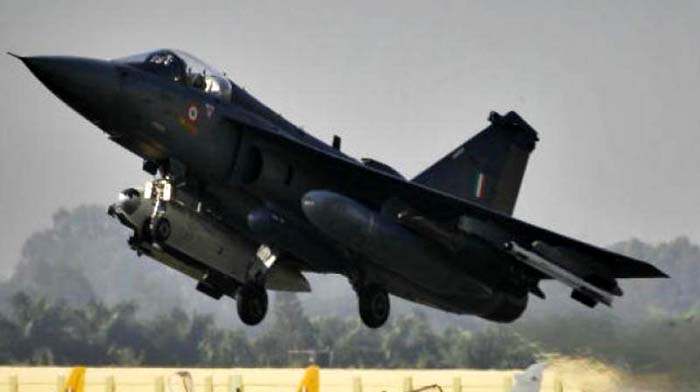After speaking with the foreign ministers of India and Pakistan, US Secretary of State Mike Pompeo said, “We encourage India and Pakistan to exercise restraint, and avoid escalation at any cost.”
Washington, February 27:
The US on Tuesday told Pakistan to avoid “military action” in the aftermath of India’s “counter-terrorism action” on Jaish-e-Mohammed’s biggest training camp in Balakot and underscored the “urgency” for it to take “meaningful action” against terrorist groups operating from its soil.
The United States also stressed the need for both India and Pakistan to “exercise restraint” and “avoid escalation at any cost”.
US secretary of state Mike Pompeo, who is in Hanoi for the second US-North Korea summit, conveyed these messages in separate phone calls with India’s external affairs minister Sushma Swaraj and Pakistan’s foreign minister Shah Mehmood Qureshi, the state department said in a statement.
The statement described the Indian Air Force’s strike on a training camp run by Jaish-e-Mohammad in Balakot in Pakistan as “counter-terrorism action”, which, it was noted by experts, was close to how New Delhi has described it, as a “non-military” pre-emptive strike on a terrorist camp.
The IAF’s strike on the Jaish camp in Pakistan’s restive Khyber Pakhtunkhwa province, about 80-km from the Line of Control (LoC) early Tuesday, killed 325 militants and terror recruits, Indian officials have said. India’s action came after 40 Central Reserve Police Force (CRPF) soldiers were killed in a suicide attack by an operative of Pakistan-based Jaish in Jammu and Kashmir’s Pulwama district on February 14, sparking outrage in the country.
About the call with Swaraj, Pompeo said he spoke to her “to emphasize our close security partnership and shared goal of maintaining peace and security in the region”.
The tone of the conversation with Qureshi, however, seemed less supportive or conciliatory.
“I also spoke to Pakistani Foreign Minister Qureshi to underscore the priority of de-escalating current tensions by avoiding military action, and the urgency of Pakistan taking meaningful action against terrorist groups operating on its soil,” Pompeo said.
“I expressed to both Ministers that we encourage India and Pakistan to exercise restraint, and avoid escalation at any cost. I also encouraged both ministers to prioritise direct communication and avoid further military activity,” he said.
Pakistan has threatened retaliatory action, “be ready for a different kind of surprise”, a military spokesperson said in Islamabad earlier, even as it has curiously, but predictably, sought to portray the Indian airstrike as ineffective.
According to state-owned Radio Pakistan, Qureshi told Pompeo that India is jeopardising peace in South Asia for its political purposes and elections and, he added, Indian “aggression” can disturb joint efforts to establish peace in Afghanistan.
Husain Haqqani, a former Pakistan ambassador to the US, said Pompeo’s emphasis on Pakistan taking meaningful action against terrorists “highlights” what the US believes is the major issue in the subcontinent. The Trump administration has taken a tough line with Pakistan on terrorism and suspended $1.3 billion security-related aid.
Also, the diplomat added, the statement “won’t please Pakistan because it fails to even mention the Kashmir dispute as the core issue”.
The US’ response to the Indian airstrike on Balakot camp in retaliation for the Pulwama terrorist attack on February 14 was in line with continuing conversations between officials of the two countries.
Just days after the attack, as India was weighing retaliatory options, US national security adviser John Bolton had conveyed his country’s acknowledgement of India’s right to retaliate, as a self-defence issue to his Indian counterpart Ajit Doval US.
The Obama administration had taken the same position in 2016 to India’s surgical strike in response to the Uri terrorist attack.
“We do empathize with India’s perception that they do need to respond militarily,” Peter Lavoy, a senior White House official then, said a few days after the Indian counter-measure.
Sushma Swaraj, who is in China for a meeting with the foreign ministers of Russia and China, defended her country’s action on Wednesday and said the limited objective of the pre-emptive strike in Balakot was to act decisively against the terrorist infrastructure of the Jaish-e-Mohammed in order to pre-empt another terrorist attack in India.
“In the light of the continued refusal of Pakistan to acknowledge and act against terror groups on its territory and based on credible information that JeM is planning other attacks in various parts of India, Government of India has decided to take pre-emptive action,” Swaraj said.
“The target was selected in order to avoid civilian casualties. Excellences, this was not a military operation. No military installations were targeted,” she added.
Swaraj was making her opening remarks during the 16th Russia, India and China (RIC) foreign ministers’ forum being held in Wuzhen, a picturesque water town in eastern China’s Zhejiang province.
“India does not wish to see a further escalation of the situation and India will continue to act with responsibility and restraint,” she said.
She earlier told her Chinese counterpart Wang Yi that the worst attack on its soldiers in Kashmir’s Pulwama district earlier this month was carried out by Jaish under the cover and impunity given it to by Pakistan.
The tension between India and Pakistan has escalated in the aftermath of the Pulwama attack. India blamed Pakistan for the continued terror attacks in India but Islamabad denied having any hand behind the terror attack in Jammu and Kashmir.
Courtesy: Hindustan Times




